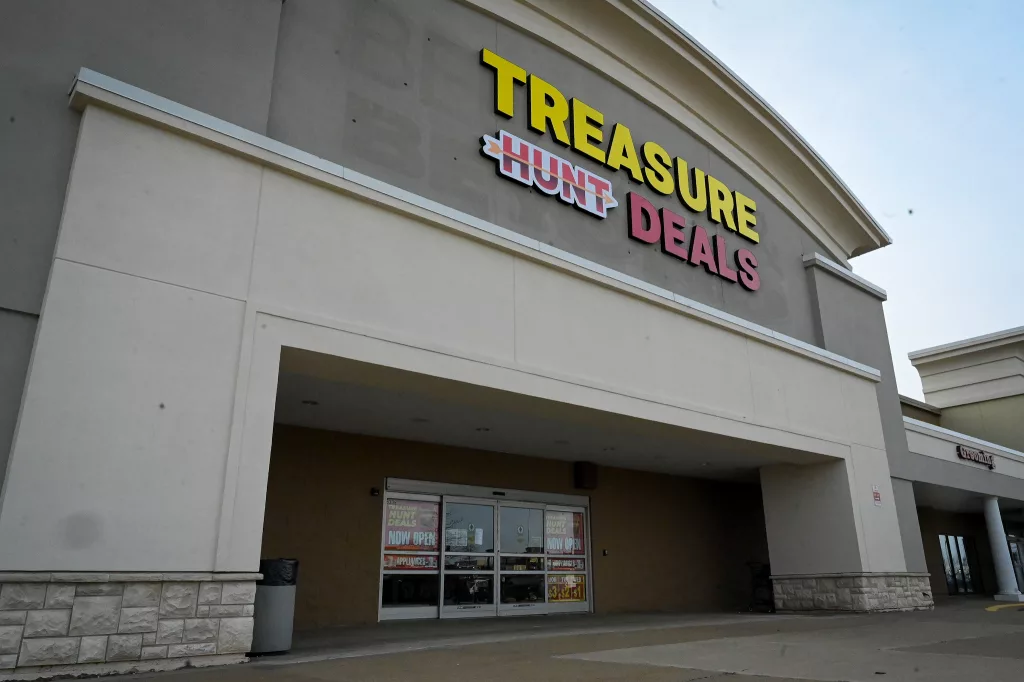Bussiness
Tax fears hitting firms’ confidence, says business group

 Getty Images
Getty ImagesConfidence among UK firms has “slumped” as they face a “pressure cooker of rising costs and taxes”, according to a business group.
The British Chambers of Commerce (BCC) said its survey of more than 4,800 firms suggested confidence had fallen to its lowest level for two years.
Nearly two-thirds told the BCC they were worried about taxes following the Budget, which announced a rise in national insurance contributions (NICs) paid by firms from April, and more than half expect to raise prices in the next three months.
A Treasury spokesperson said more than half of employers would either see a cut or no change in their NI bills.
The strength of the UK economy has come under focus following the release of disappointing growth figures just before Christmas.
The latest official data showed the economy had zero growth between July and September, while it contracted during October.
The figures were seen as a blow to the government after it made boosting the economy its top priority.
Labour has promised to deliver the highest sustained economic growth in the G7 group of the world’s richest nations.
Businesses have already warned that Budget measures such as the rise in employer NICs, together with the higher National Living Wage, could lead to job cuts and price rises.
 Kevin McNamee/Denroy Group
Kevin McNamee/Denroy GroupKevin McNamee is chief executive of Denroy Group, a manufacturer of plastic goods based near Belfast that employs 250 people.
He said the combined impact of the changes to the minimum wage and national insurance would cost the company “hundreds of thousands of pounds, it’s really significant”.
It was “probably inevitable” the prices on some of their goods would have to rise to try to cover the higher costs, he said.
“The focus now will be on boosting productivity, reducing headcount or certainly not adding to the headcount as the business grows and driving that productivity.”
He added businesses had been “shocked” by the changes to national insurance.
“It’s hard to see how the Budget incentivises businesses to invest to grow, we’ve had our pockets picked to an extent here.”
The BCC collected data from more than 4,800 businesses across the UK between 11 November and 9 December. It said 91% of the firms surveyed were classed as small and medium-sized enterprises, with fewer than 250 employees.
It found 63% of firms were worried about tax. That was the highest level since 2017 when the business group began recording the data, and was up from the previous reading of 48%.
The BCC said confidence had fallen, with 49% of firms expecting sales to increase over the next year. The business group said this was the lowest level since the aftermath of the mini-budget in late 2022.
More than half – 55% – of firms who took part in the survey said they expected to raise their prices in the next three months.
“The worrying reverberations of the Budget are clear to see in our survey data,” said Shevaun Haviland, the BCC’s director general.
“Businesses confidence has slumped in a pressure cooker of rising costs and taxes.
“Firms of all shapes and sizes are telling us the national insurance hike is particularly damaging. Businesses are already cutting back on investment and say they will have to put up prices in the coming months.”
A Treasury spokesperson said: “We delivered a once-in-a-parliament Budget to wipe the slate clean and deliver the stability businesses so desperately need.
“We have ensured more than half of employers will either see a cut or no change in their National Insurance bills, and by capping the rate of corporation tax at the lowest level in the G7, creating pension megafunds and establishing a National Wealth Fund, we are bringing back political and financial stability, creating the conditions for economic growth through investment and reform.”
The spokesperson added this was just the start of the government’s plans for change which “will make all parts of the country better off”.











